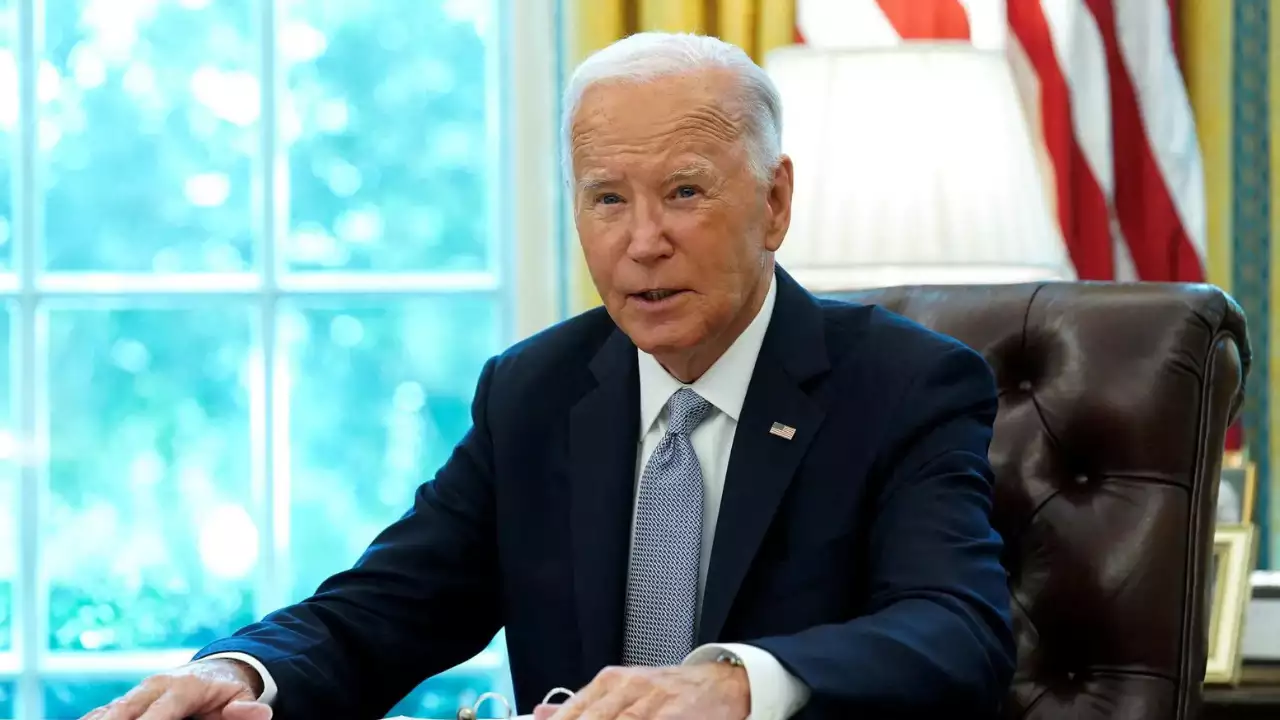
The planned regulation, first reported by Reuters, would also force American and other major automakers in the coming years to remove key Chinese software and hardware from vehicles in the United States.
The Biden administration has raised serious concerns about the collection of data by Chinese companies on U.S. drivers and infrastructure through connected vehicles as well as about potential foreign manipulation of vehicles connected to the internet and navigation systems. The White House ordered an investigation into the potential dangers in February.
The prohibitions would prevent testing of self-driving cars on U.S. roads by Chinese automakers and extend to vehicle software and hardware produced by other U.S. foreign adversaries including Russia.
"When foreign adversaries build software to make a vehicle that means it can be used for surveillance, can be remotely controlled, which threatens the privacy and safety of Americans on the road," Commerce Secretary Gina Raimondo told a briefing.
"In an extreme situation, a foreign adversary could shut down or take control of all their vehicles operating in the United States all at the same time causing crashes, blocking roads."
The move is a significant escalation in the United States' ongoing restrictions on Chinese vehicles, software and components. Earlier this month, the Biden administration locked in steep tariff hikes on Chinese imports, including a 100% duty on electric vehicles as well as new hikes on EV batteries and key minerals.
There are relatively few Chinese-made cars or light-duty trucks imported into the United States. But Raimondo said the department is acting "before suppliers, automakers and car components linked to China or Russia become commonplace and widespread in the U.S. automotive sector... We're not going to wait until our roads are filled with cars and the risk is extremely significant before we act."
Nearly all newer cars and trucks are considered "connected" with onboard network hardware that allows internet access, allowing them to share data with devices both inside and outside the vehicle.
A senior administration official confirmed the proposal would effectively ban all existing Chinese light-duty cars and trucks from the U.S. market, but added it would allow Chinese automakers to seek "specific authorizations" for exemptions.
The United States has ample evidence of China prepositioning malware in critical American infrastructure, White House National Security Adviser Jake Sullivan told the same briefing.
"With potentially millions of vehicles on the road, each with 10- to 15-year lifespans the risk of disruption and sabotage increases dramatically," Sullivan said.
The Chinese Embassy in Washington last month criticized planned action to limit Chinese vehicle exports to the United States: "China urges the U.S. to earnestly abide by market principles and international trade rules, and create a level playing field for companies from all countries. China will firmly defend its lawful rights and interests."
The proposal calls for making software prohibitions effective in the 2027 model year while the hardware ban would take effect in the 2030 model year or January 2029.
The Commerce Department is giving the public 30 days to comment on the proposal and hopes to finalize it by Jan. 20. The rules would apply to all on-road vehicles but exclude agricultural or mining vehicles not used on public roads.
The Alliance For Automotive Innovation, a group representing major automakers including General Motors, Toyota , Volkswagen and Hyundai, has warned that changing hardware and software would take time. The group noted connected vehicle hardware and software are developed around the world, including China, but could not detail to what extent Chinese-made components are prevalent in U.S. models.
Disclaimer: The copyright of this article belongs to the original author. Reposting this article is solely for the purpose of information dissemination and does not constitute any investment advice. If there is any infringement, please contact us immediately. We will make corrections or deletions as necessary. Thank you.





